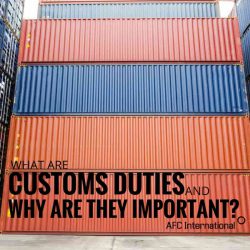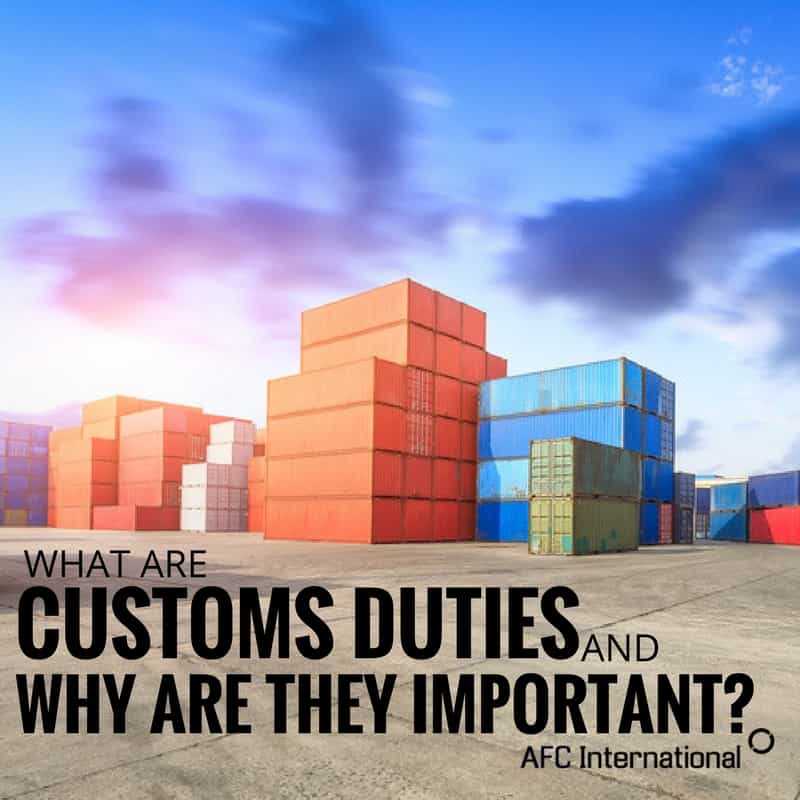One of the downfalls of the Fyre Festival, you know that prestigious, expensive music festival in the Bahamas that was canceled before it could begin, was the admission of organizers that they did not pay customs duties on the items they imported. So what are customs duties and why do you need to pay them? We have you covered.
When you do not pay the proper customs duty taxes for imported merchandise, your imports will be confiscated and your imports and profits are stuck in limbo.
Don’t let this happen to you. Find the answers you need to customs duty questions to stay ahead of the game as an importer.

What Happened at the Fyre Festival?
They Did Not Pay Customs Duty Taxes
There were many reported issues with the music festival that never got off the ground. A big issue that led to the festival’s demise was the reported lockdown of the Fyre Festival by the island county’s government, made in part because the Bahamas Ministry of Tourism announced that customs duty taxes were not paid on items imported for the festival, resulting in the items being confiscated and a security guard left to guard the items. What are customs duties? Let us explain.
What Are Customs Duties?
A customs duty is an indirect tax levied on both imports and exports by customs authorities for international shipments.
So is a customs duty the same as a tariff?
No, no it is not. A customs duty is a tax assessed when importing or exporting. Tariffs are specific taxes paid on items that are classified in a particular class of imports.
How are Customs Duties Used?
The customs duty tax is enforced to protect a country’s economy and to control cargo entering and exiting a country.
How Are Customs Duties Assessed?
A customs duty is usually based on the value of goods or is based off of a product’s weight, dimensions or other specific criteria.
When Are Customs Duties Collected?

Customs duties are usually collected while your goods are being examined and inspected by border officials that are looking to establish a complete description of your imports. Customs officials are typically looking for trademark issues or fair market trade based on the assessment value of your imports. Customs officials are also looking to confirm the country of origin for your imports because certain trade agreements exist with designated countries that can result in duty free tariffs.
Who Collects Customs Duties?
The customs authority in each country is responsible for the collection of customs duties imported or exported into each particular country. So who foots the bill? Read on to find out.
Who Pays Customs Duties?
You as the importer pay customs duties.
What Are the Import Documents You Must File?

The necessary import documents you need to file for importing successfully include:
- A commercial invoice that lists the purchase price, the country of origin and HTS tariff classification
- A packing list detailing your imports
- A bill of lading that lists goods in the form of a receipt
- An arrival notice from the U.S. agent
Warning: Read below to find out how you can avoid being duped as an importer.
How Can I Avoid a Customs Duty Dupe?
Sellers and shippers typically can’t pay customs duties in advance. Sellers sometimes vouch for paying the customs duties when they typically have not. Working with a Licensed Customs Broker can ensure customs duties are paid on your behalf. Learn how to set up an account next.
How Do You Set Up a Customs Broker Account?
Don’t get caught with your feet to the Fyre (see what we did there?)
A licensed customs broker can help you pay your customs duty taxes and file your documents properly to avoid penalties. Follow our guide to help you decide when you need a customs broker. Set up a customs broker account and relax as you entrust the process in the hands of an importing professional today!


Leave a Reply
You must be logged in to post a comment.